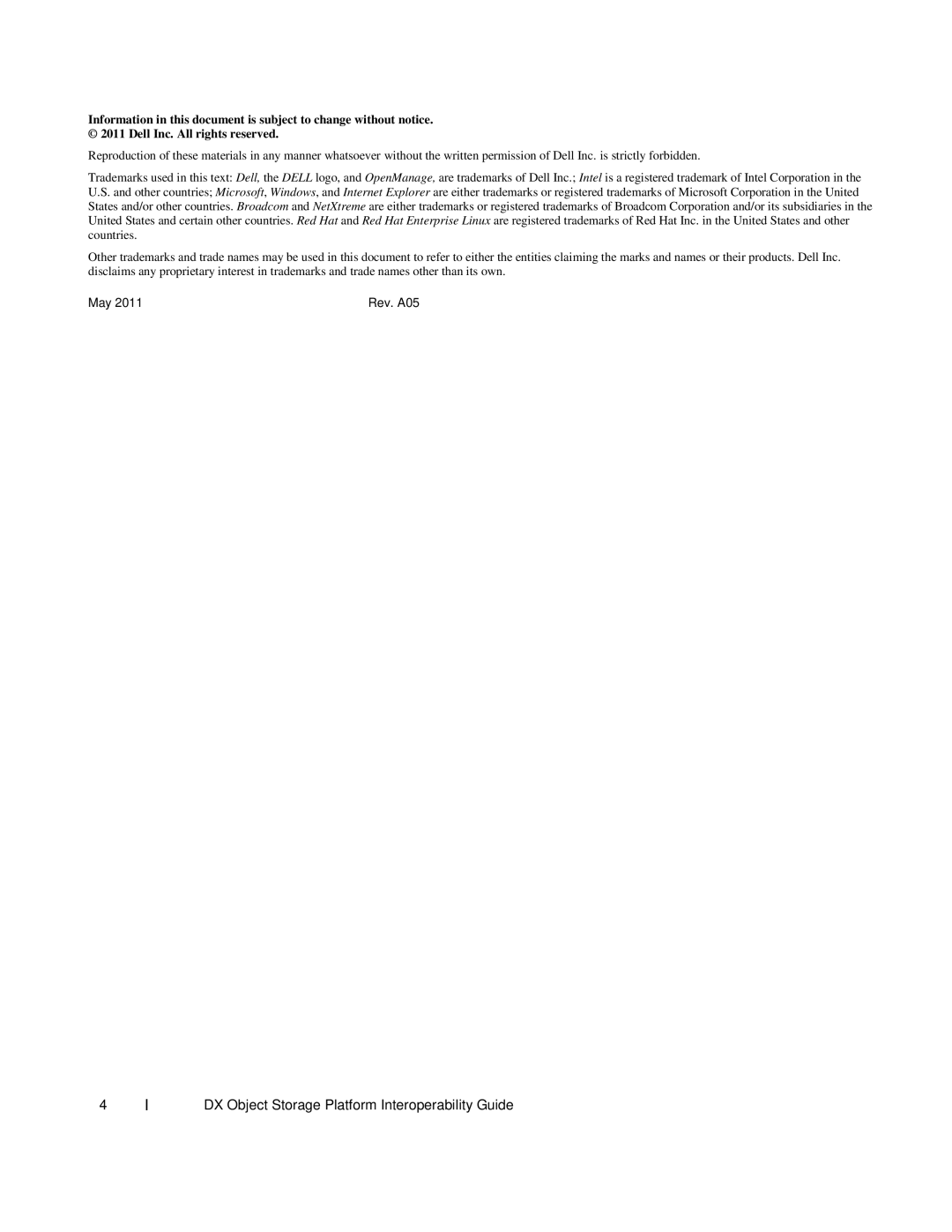DX6000, DX6012S, DX6004S specifications
The Dell DX6012S, DX6000, and DX6004S represent a series of innovative storage solutions designed to cater to the evolving needs of businesses. These models are characterized by their high performance, scalability, and reliability, making them ideal choices for data-intensive environments.The Dell DX6012S is engineered with a focus on high-density storage, providing organizations with a cost-effective way to store and manage large volumes of data. It supports SATA and SAS drives, ensuring flexibility for enterprise storage requirements. With up to 12TB of capacity in a single unit, the DX6012S meets the demands of businesses looking for expansive storage solutions without compromising performance.
The DX6000 model is tailored for environments where speed and access time are critical. This system incorporates advanced RAID configurations and supports both HDD and SSD options, allowing users to optimize for either capacity or performance. The DX6000 seamlessly integrates with existing data workflows through robust connectivity options, including iSCSI and Fibre Channel, ensuring that it fits into a variety of IT infrastructures.
Meanwhile, the DX6004S takes scalability to a new level. Designed with the future in mind, this model can be easily expanded by adding additional nodes to form a powerful storage cluster. This capability is valuable for organizations anticipating growth in data volume and needing a solution that can evolve with their demands. The DX6004S also features comprehensive data protection technologies, including automated backups and snapshots, which safeguard against data loss and improve recovery times.
All three models leverage Dell’s Intelligent Automation software, which enhances efficiency by simplifying storage management tasks. Features such as self-healing capabilities and predictive analytics help to monitor system health and performance, allowing IT teams to focus on strategic initiatives rather than daily maintenance tasks. Furthermore, energy-efficient designs in these systems contribute to lower operational costs and a smaller carbon footprint.
In summary, the Dell DX6012S, DX6000, and DX6004S offer a diverse range of features and technologies that cater to different business needs. Their combination of capacity, speed, and scalability, along with intelligent management tools, makes them exceptional choices for organizations seeking robust and reliable storage solutions for the future.
